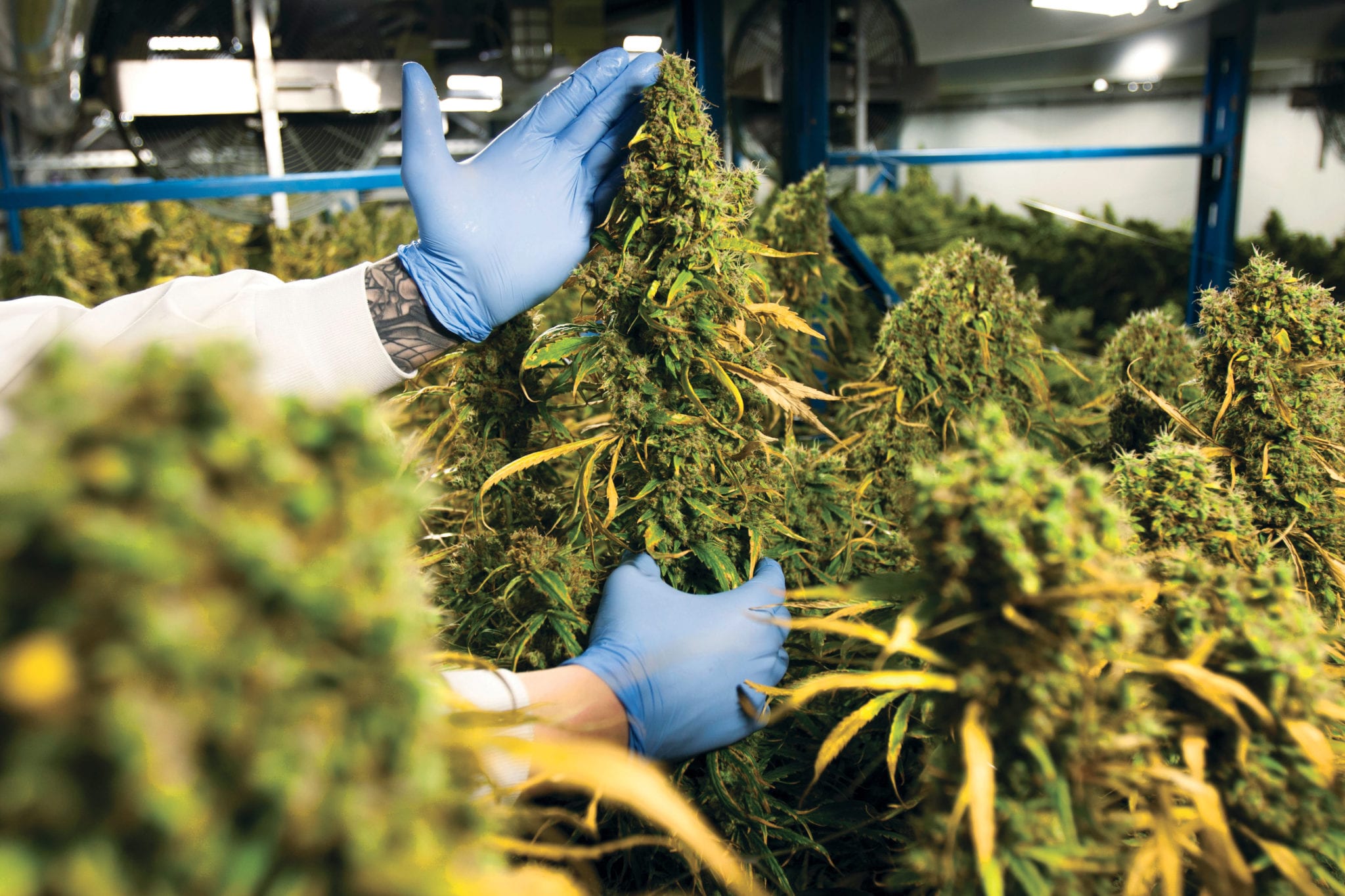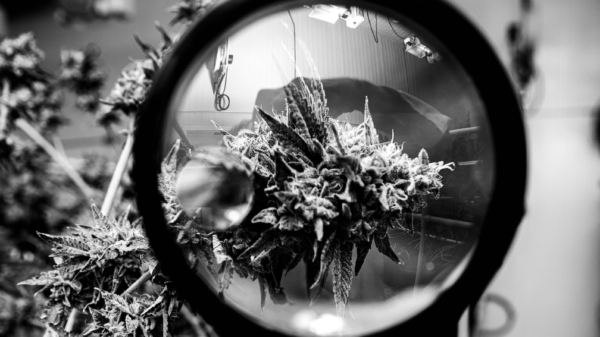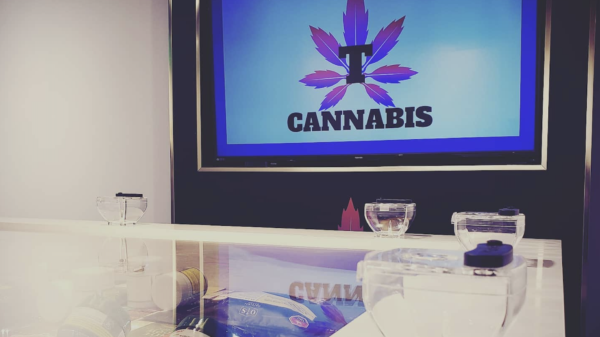Canopy Growth Corp. (TSX: WEED) kicked off a busy earnings season last week that saw America’s cannabis companies continue to steal the thunder of their Canadian counterparts.
Ontario-based Canopy, which is often used as a market barometer, reported a mixed bag of results as it sticks to a corporate downsizing plan.
The firm beat expectations with net revenues of $110.4 million for its second fiscal quarter ended June 30, but still took a $128 million net loss and second straight decline in Canadian recreational market sales.
Read more: Canopy’s recreational cannabis sales continue to decline
With $2 billion in its cash trove, Canopy said it will outlast the economic storm created by Covid-19 and be in position to dominate the U.S. market, if and when the country legalizes weed federally.
Meanwhile, established U.S. operators are posting record weed sales amid the pandemic, giving them something many Canadian companies can only dream of: profit.
Cannabis earnings snapshot for first full quarter of Covid-19
Tilray Inc. (Nasdaq: TLRY) posted earnings just hours after Canopy on Aug. 10, booking a net loss of US$81.7 million on net revenue of US$50.4 million for its first quarter ending June 30.
The B.C.-based producer pointed to a number of non-cash losses, including inventory adjustments and facility closures due to the corornavirus outbreak. A reported US$18.6-million inventory valuation adjustment and a charge of US$28.4 million for asset impairments both weighed on the firm’s bottom line.
CEO Brendan Kennedy said the company is focused on hitting profitability by reducing its cost structure and cash burn, adding that international medical sales are now outpacing its Canadian medical business.
At the end of the quarter, Tilray reported US$137.2 million in cash and cash equivalents, and said it has access to a remaining US$250 million in an at-the-market offering.
Company stock has dropped 5 per cent since issuing its financials, and has fallen 57 per cent year-to-date.
Trulieve Cannabis Corp. (CSE: TRUL) led the crop of U.S. cannabis operators in the week’s earnings brigade.
On Aug. 12, the Florida medical monolith said second quarter revenue came in at US$120.7 million, up 26 per cent sequentially, while its adjusted EBITDA was an industry-leading US$60.5 million.
The company raised its sales forecast for the fiscal year amid increasing demand for legal weed. Revenues are now projected to come in between US$465 million and US$485 million, while adjusted EBITDA should be between US$205 million to US$225 million for the year.
Trulieve also expects to exceed its goal of 68 stores in Florida, and plans to be up and running in the Massachusetts market by 2021.
A couple of days after beating earnings expectations, shares in Trulieve reached an all-time-high at $34.90 on Aug. 14. Company stock has more than doubled since 2020 began.

Chicago-based Green Thumb Industries operates 48 Rise cannabis stores in 10 U.S. states. Press photo
Green Thumb Industries, Inc. (CSE: GTII) is another U.S. operator that shined in the quarter.
The Chicago-based firm said second quarter revenue rose 17 per cent sequentially to US$119.6 million, with an adjusted EBITDA coming in at US$35.9 million.
Green Thumb operates eight stores under its Rise banner in the rapidly-growing Illinois market, and another 40 stores across nine other states, primarily in Florida, Pennsylvania and Massachusetts.
The company is also investing in New Jersey operations, a state expected to vote yes on a recreational cannabis ballot in the U.S. election Nov. 3.
Shares in GTII have climbed 10 per cent since reporting financials on Aug. 12, and are up more than 66 per cent, or $8, since the start of the year.
Harvest Health & Recreation Inc. (CSE: HARV) doesn’t have the allure as the two big U.S. operators mentioned above, but it did manage to beat expectations in the three months ending June 30.
The Arizona-based company posted US$55.7 million in revenue for the second quarter, up 26 per cent sequentially, and an improved net loss of US$18.3 million.
Harvest Health said it owned, operated, or managed 35 retail locations in seven states at the end of the quarter, including 14 dispensaries in Arizona.
The company updated its outlook for the rest of the fiscal year, stating it expects to rake in US$215 million–220 million in revenue, up from the prior target of around US$200 million.
Since reporting earnings Aug. 11, Harvest Health stock has slipped 7 per cent and has fallen 58 per cent year-to-date.
Acreage Holdings, Inc. (CSE: ACRG.U) didn’t shine as bright as its American peers in the quarter, but the U.S. operator is backed by a recent US$100 million injection from Canopy Growth.
The New York-based company reported second quarter net revenue of US$27.1 million, a 12 per cent increase compared to the first quarter, and a net loss of US$37.2 million.
Acreage, which operates in 20 states, said it was divesting from several jurisdictions, closing underperforming assets and cutting costs to slow its cash burn rate.
In June, Canopy restructured and lowered the value of its deal to acquire Acreage once it’s federally permissible to do so.
Acreage stock is up a modest $0.11 since it reported second quarter results on Aug. 12, but is down 48 per cent since the year began.
Back in Canada, MediPharm Labs Corp. (TSX: LABS) illustrated why market growth north of the border continues to lag behind the thriving U.S. legal sector.
On Aug. 13, the Ontario-based extractor reported $13.9 million in second quarter net revenue, while also booking an adjusted EBITDA loss of $2.2 million.
MediPharm did increase sales by 25 per cent from an abysmal first quarter, but is still trying to pick up from the record $43.4 million sales it posted in the third quarter of fiscal 2019.
As the pandemic continues to delay bulk extraction contracts with Canada’s bigger producers, the company said it has shifted its business to provide white-label services as well as supply global markets like Australia and Germany.
MediPharm shares have fallen 13 per cent since its Q2 report, and have cratered 78 per cent since the start of the year.
Meanwhile, Neptune Wellness Solutions Inc. (TSX: NEPT) is a Canadian extraction firm heading in a more promising direction.
The Quebec company reported first-quarter financials Aug. 11, booking a $11.4 million net loss on $21.3 million in revenue.
Neptune said its revenue grew 124 per cent quarter-over-quarter because it was able to pivot its business towards fighting Covid-19 by introducing plant-based sanitizers and an electronic pulse device to market.
The company said it expects to report between $28 million and $32 million in revenue in the next quarter.
Neptune shares are down 11 per cent, or $0.47 since it released its results, but are still up a modest $0.17 year-to-date.
Zenabis Global, Inc. (TSX: ZENA) was among a slew of mid-sized Canadian producers to struggle in the quarter.
On Aug. 14, the Vancouver-based company reported a second-quarter net loss $15.7 million on net sales of $27.4 million.
Zenabis said losses jumped significantly from $1.5 million recorded in Q1 mainly due to non-cash charges related to the conversion of convertible debt.
The firm believes the country’s recreational market will continue to grow in 2020 as the number of retail store openings in Ontario rises.
Zenabis forecasts that revenue in the next quarter will reach $22–26 million, while expecting an adjusted EBITDA in the range of $4–6 million.
Company stock, however, has plunged 29 per cent since its Q2 figures were released.
Sundial Growers Inc. (Nasdaq: SNDL) is another troubled producer saying if things don’t improve soon it may be up for sale.
The Alberta-based company said it made $20.2 million in net revenue in the second quarter, while also booking a $31.5 million net loss.
Sundial stated that it was in the middle of a “transition year,” and all options remain on the table. That includes a potential sale of the business, merger or other business combination, or dumping some of its production assets.
The company said industry price compression amid steep competition has hurt its operations this year.
With over 400 cultivation licences being issued in Canada, experts agree there are too many producers in the underperforming market.
When Sundial launched its IPO on the Nasdaq last year, it garnered unicorn status with a $1 billion market valuation. The company now sits at a US$50 million market capitalization. Shares in the company have fallen 34 per cent since its Q2 earnings report was released on Aug. 14.
Top image via Organigram
jared@mugglehead.com
@JaredGnam


















